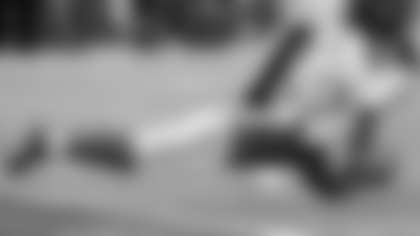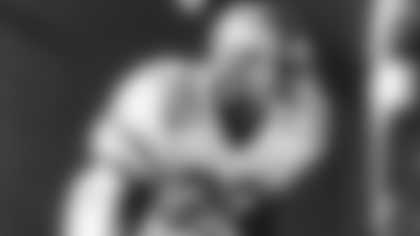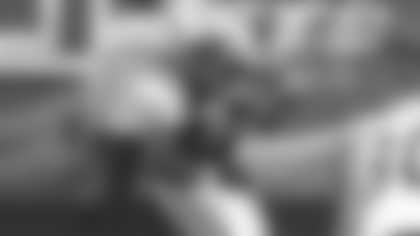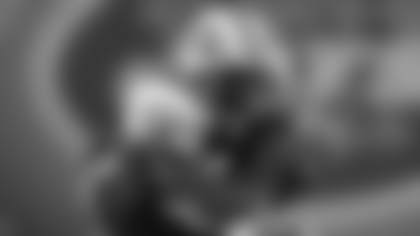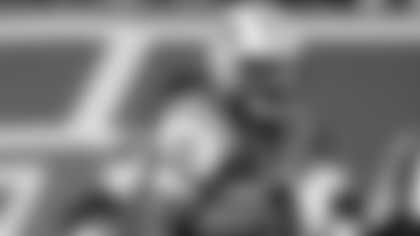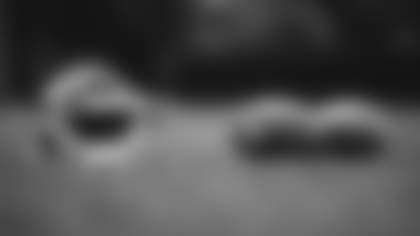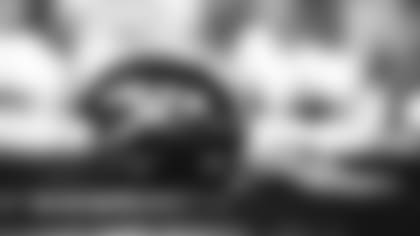
A redshirt quarterback at Penn State, Bob Scrabis' extended time in Happy Valley allowed him to put his degree to work as a graduate assistant for an accounting professor. And it allowed him to be the Nittany Lions' freshman team backfield coach.
And in 1960, in a roundabout way, it also offered him the opportunity to try out for the New York Titans, which would later become the Jets, in the first-year American Football League.
"I would be throwing the ball around, and a friend of mine was buddies with Steve Sebo, the man who was going to be the General Manager for the Titans," Scrabis said. "And he was signing truck drivers and anybody that could walk, for God's sake. He mentioned to Sebo, 'Why don't you take a look at this guy, Scrabis?' So he did, and he offered me a big, whopping $7,500 for a 14-game season, and $50 an exhibition game, which there were five.
"So we went to (training) camp, and we had so many gosh, darn guys, they had to break us up. Two groups in the morning, and two groups in the afternoon. I was maybe a little bit out of shape, and there was a little hill coming down to the practice field. (Head Coach) Sammy Baugh was there, and there was a bus that would pick guys up and take them back into New York and bring another load of guys in.
"Sammy saw me coming down and said, 'Look at this tub of sh**. Let's give him a quick look and put him on the next bus going back to New York.' So I came in and I could not miss. I hit everything. He got so excited. He chewed tobacco a lot and he'd be spitting on the ground, and with a stick, he'd diagram plays in the dirt."
Someone who relied on using paper instead of dirt took notice of Scrabis' performance on the practice field and tracked him down.
"I was rooming with a kid by the name of Bob Coburn," Scrabis said, "and Howard Tuckner from the New York Times came in and said, 'Bob?' And I said, 'You must want to talk to him.' And he said, 'No, no. I want to talk to you.'
"And I said, 'Are you kidding me? The New York Times guy wants to talk to me?' So he said to me, 'You know what you did? You threw the very first pass of the organized Titans of New York Football Club.'"
One of eight teams in the upstart AFL, it was uncertain how the Titans and the other teams would fare against the more established NFL. Or if they would fare at all.
And even though he was a recently acknowledged history maker, Scrabis knew the feeling.
"I was quickly released, and I came back and (Baugh) offered me a spot on the taxi squad," Scrabis said. "And then there was a game where (the starting quarterback) Al Dorow got hurt, and the only backup we had was Dewey Bohling. So, I'm sitting there, 'OK, let's see, what's my strategy? I'm getting the hell out of here so they have to come to me.' And I held them up for another $500.
"So I was with the Titans and it came down to a time where they had to put somebody on waivers. And in the last game of the exhibition season, I had been playing very, very well the games before, but I did not play in this game and I said, 'What the hell's this all about?'
"Their thought was that they could put me on waivers and nobody's going to claim me because they didn't know enough about me. But (Chargers offensive assistant coach) Al Davis and Sid Gilman, the head coach in San Diego, they got me (after putting in a waiver claim).
"So I was with San Diego for a while, but my heart wasn't into it. We were practicing at MCRD, Marine Corps Recruiting Depot, and were close to the airport. Planes would take off and I'd say, 'Why couldn't I be on one of those going back to New York?' And shortly after that, that came true and I went back to New York."
Released by the Chargers, Scrabis was back on familiar ground where he, once again, had to experience the equally familiar feeling of not knowing if the Titans would survive.
"Because the money was starting to run out, what happened was, a lot of these guys would go down to the bank, and by the time their checks cleared, there was no money in the bank," Scrabis said. "So I would go down there as soon as we got our checks and get the certain amount of money that I needed, and then get a cashier's check and send it home."
With the Titans for three seasons, 1960-62, Scrabis, married, and used the part of his salary which was sent home to buy into his father-in-law's auto dealership, Bob Auer Buick, in Lakewood, New Jersey. Taking over the business in 1969, he ran it for 43 years before retiring.
Scrabis and his wife, Janice, make their home in Avon-by-the-Sea, New Jersey. They have three children: Amy, who lives in Bath, England; Bob, who is a partner with the Reilly Financial Group in Iselin, NJ, and was a key player for Princeton's basketball team in the infamous 1989 NCAA Tournament game against Georgetown; and Kristin, who is a professor at Montclair State University. They also have five grandchildren.
Fifty-nine years after Scrabis hung up his helmet, what are some differences he sees in the game now than from when he played?
"I was backup to Billy Mathis on the kickoff team. And one time he said, 'Benny!' He called me Benny. Why? I don't know where that came from," he laughed. "But he said, 'Benny, get in here! Take my spot!' And I said, 'Are you crazy? Do you see my number? [19] They know I'm a God damn pussy cat, and they're going to kick my ass!'
"The Jets have the Legends Community, and we went back for a game and they had us on the field. I knew these guys were big, but they even looked bigger for God's sake on the field.
"And I watch the games now and listen to all the guys analyze the game and show so much. When I was in college, one of the coaches would go to the stadium of our (upcoming) opponent. He would view the game and put down notes and come back with a scouting report. And then the school would send one tape, whichever one they wanted of the game. Whoever came in first, the offense or defense, they would get to see the film first because we only had one projector."



